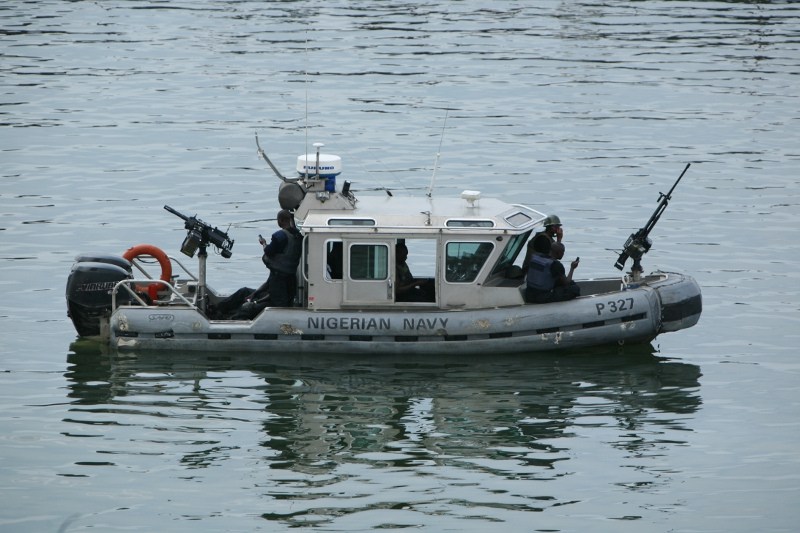Nigeria lost $48 million to pipeline vandalism and crude oil theft between January and June 2020, it was learnt on Tuesday.
It was further learnt that it is practically impossible for now to stop the smuggling of crude oil products across the country’s borders to neighbouring countries.
This is even as the Federal Government requires $2billon to replace obsolete pipelines from Excravos to Kaduna.
The Group Managing Director of the Nigerian National Petroleum Corporation (NNPC), Melee Kyari disclosed these in Abuja yesterday.
Also yesterday, the Senate faulted direct deductions by the NNPC from the sale of crude oil.
Kyari spoke at an interactive session on “Exiting Petroleum Subsidy: Ensuring Self-Sufficiency in Domestic Refining of Petroleum Products” organised by the Senate Joint Committee on Petroleum Resources (Upstream and Downstream).
According to him, this year alone, the country has lost about 48 million dollars worth of crude oil due to pipeline vandalism.
He, however, said the amount is lower when compared to similar losses in the past.
He said that in 2018 and 2019 alone, the country lost $825 million and $725 million respectively.
The reduction, he said, was because of the increased surveillance by the security agencies.
He said pipelines are being destroyed within townships, not in the bush, with the active connivance of security agents, security contractors and community leaders.
He said the NNPC has decided to hand over pipeline security completely to the security agencies, “It is their work to secure government property.”
On smuggling of petroleum products across the nation’s borders, the GMD said that only way to stop the menace is to remove fuel subsidy completely.
Kyari added: “We don’t know how much petroluem we consume daily in this country, but we know how much of product is taken out of depot.”
He said that around 54 million litres of petroluem product are evaquated from the depots daily, but that the consumption is somewhere below that.
He also said that the NNPC has no knowledge of the amount of products that are transported through the nation’s borders to neighbouring countries.
“It is impossible to know, nobody declares it, and therefore as it crosses, it goes,” he said.
He added that the price of fuel at the borders is higher than the official rate.
“There are open borders across the West African sub-region. It is impossible to stop cross border supply of products. No amount of policing or control that anyone can put in place that can stop that,” he said.
He said the only way to stop the smuggling of products is to walk away from subsidy so that the sector can have stability.
He said that the NNPC is working with CBN to stabilize forex market for all, so that marketers will access forex at market rate and get product at market price.
He added that, “there have been several attempts in the history of the country to walk away from subsidy in Petroleum.
“Until March this year, there were no subsidy on aviation fuel, but the one we couldn’t walk away from is subsidy on PMS.
“We have never seen this price collapse in the history of oil. The price fall from 50 dollars per barrel to less than 10 dollars and no country is prepared for this. Nobody saw it coming. The result of this is revenue collapse, because there is a direct correlation.
“Today, in our effort to ensure price stability in collaboration with the rest of the world, our daily crude oil production is at 1.48 million barrels per day.”
He said that the oil giant cannot meet the 1.8million barrels of oil per day stipulated for it in the revised 2020 budget passed recently by the National Assembly.
“We are better off producing 1.7million and once the price gallops up to 45 dollars, we can accommodate the difference,” he said.
He said that the NNPC deliberately shut down the three refineries because they were producing at a loss.
Kyari said: “There is such a condition that we can only extract 70 to 80 percent of the value of a crude. It is needless to operate it when you know you will lose 20% of the value.
“Second is that we cannot even guarantee crude oil supply to these lines.
“From Excravos to Warri and then to Kaduna; Bonny to Okrika, the pipelines are very old – some are 30 to 40 years old – and have not been replaced, and all the activities of the vandals that happens every day, if you put them under pressure that they are designed for, you cannot guarantee required crude oil supply except they are replaced.”
“We have not done proper maintenance in the last 30 years, and the cumulative effect is that even when you start it today, it can not be run optimally.
“You can not do anything except you replace the pipeline and the cost of replacement is very high. To replace pipeline from Excravos to Kaduna, you need at least $2 billion, and we don’t have that kind of money.”
He insisted that the best two refineries, Warri and Port Harcourt, were only producing a little above 25% of their capacity when they were running in 2018.
He said that N64 billion was spent to resuscitate Kaduna refinery, but still it didn’t work.
“We decided to shut all the refineries down completely,” he said.
He however said the NNPC is working with partners to fix the refineries.
According to the GMD, except for Port Harcourt refinery, which will be partly funded by government money because there is provision for it in the 2020 budget, the two others will be fixed completely by third party financing.
He lamented that even if the three refineries are running, they can only produce 18 million litres of PMS per day, a figure, he said is far below 60 million litres the Group delivers every day.
“This means that the country will still be a net importer of PMS,” he said.
On the need to build new refineries, the GMD said that there are many firms that have been given license to build refineries but have been unable to do so
He added: “Why people don’t build refineries here is for a very simple reason. When they process, at what rate will they sell the product? Can they recover their cost? This is why no bank will put its money, nobody will proceed with building of refineries.
“The only way we can have that development is to support the market-based regime or you assure them that when they produce, you buy the product from them at a price they want to deliver it at the market. And that is not an option.
“The option we have is to allow the market to run. You will see activities at the refinery subsector when there is total removal of subsidy.”
The Chairman Senate Joint Committee on Petroleum Resources (Upstream and Downstream) Senator Sabo Mohammed, in his remarks said: “Permit me to say, that it is very dishearthening and worrisome, the way and manner subsidy expenditures soared to over 210% within two months period from average cost of N774million per-day in March, 2018 to N2.4 billion per day in May, 2018.
“Report shows that NNPC as a sole importer of Petroleum products claimed N843.12 billion and over N1trillion as under recovery in 2018 and 2019 respectively against the average of about N511 billion per year in 10 years within the subsidy regime.
“This arbitrary and unsupervised direct deductions in the name of Underrecovery from the country’s crude oil revenue without recourse to any enabling law is totally against Section 80 (1, 2, 3, and 4) of the 1999 Constitution (as amended).
“Let me at this point, crave your indulgence to point out that the NNPC Act which empowers the corporation to submit to the National Council of Minister‘s not later than three months before the end of each financial year, estimates of its expenditure and income relating to the next financial year‘ does not negate the supremacy of the Constitution on appropriation matters.
“The Constitution is very clear on the National Assembly’s role in appropriating monies belonging to the Federation and did not exempt anyone.
“The non-scrutiny of the NNPC budget by the National Assembly makes its oversight role on NNPC very difficult, if not nearly impossible and should be addressed as quickly as possible.”



